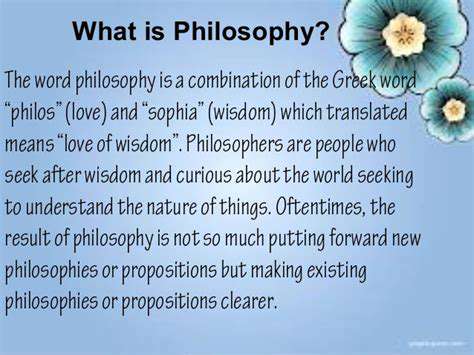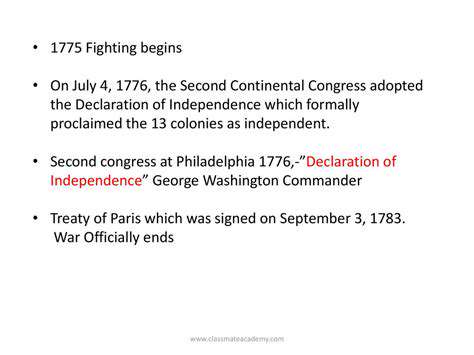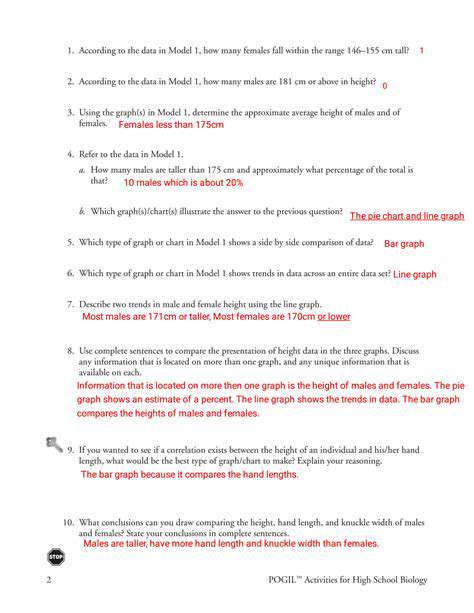Declaration of Independence: Historical Insights, Modern Relevance, and Educational Resources
The Enlightenment's Influence
The 18th century witnessed a profound intellectual shift known as the Enlightenment, which significantly shaped the philosophical underpinnings of the Declaration of Independence. Enlightenment thinkers, such as John Locke, championed natural rights, emphasizing the inherent rights to life, liberty, and property. These ideas, disseminated through philosophical treatises and salons, profoundly influenced the American colonists' understanding of government and the justification for self-governance. The concept of a social contract, where individuals consent to be governed in exchange for protection of their rights, became a cornerstone of the revolutionary ideology.
Colonial Grievances and Taxation Without Representation
The American colonies, while initially enjoying a degree of autonomy, faced increasing restrictions and taxation from the British Crown. A series of acts, such as the Stamp Act and the Townshend Acts, imposed heavy taxes on colonists without their representation in Parliament. This principle of taxation without representation became a rallying cry for colonial resistance, highlighting the fundamental injustice of being subjected to laws and policies without having a voice in their formulation.
This feeling of disenfranchisement, coupled with economic hardship, fueled resentment and ultimately played a pivotal role in shaping the colonists' resolve to declare independence.
The Seven Years' War and its Aftermath
The Seven Years' War, a global conflict between Great Britain and France, had significant consequences for the American colonies. While the British emerged victorious, the war left the British Empire with substantial debts. This debt crisis led to an increased need for revenue generation, prompting the imposition of new taxes and regulations on the colonies. The colonists, burdened by these financial demands and a growing sense of disconnect from the British government, began to question the legitimacy of British authority in North America.
The Role of Propaganda and Popular Opinion
Pamphlets, newspapers, and public speeches played a crucial role in shaping public opinion and mobilizing support for independence. Works like Thomas Paine's Common Sense effectively articulated the colonists' grievances and the merits of self-governance. These publications resonated with a broad segment of the population, inspiring a sense of collective identity and fostering a shared vision of a free and independent nation. This crucial dissemination of ideas was instrumental in the development of a unified front against British rule.
The Impact of Republicanism
Republican ideals, emphasizing civic virtue, public service, and the common good, significantly influenced the American revolutionaries. The colonists viewed themselves as embodying these ideals, contrasting their perceived republican values with the perceived corruption and tyranny of the British monarchy. The desire to create a government based on principles of popular sovereignty and representation further fueled the movement towards independence. This republican philosophy provided a framework for understanding the necessity of a new nation based on the consent of the governed.
The Influence of Mercantilist Policies
British mercantilist policies, designed to benefit the mother country, often stifled colonial economic growth and development. These policies restricted colonial trade, favored British merchants, and placed limitations on manufacturing in the colonies. The colonists felt increasingly constrained by these policies, viewing them as a barrier to their economic prosperity and self-determination. These restrictions fueled resentment and contributed to the growing divide between the colonies and Great Britain.
Philosophical Foundations of Natural Rights
The Declaration of Independence's assertion of natural rights, primarily articulated by Enlightenment thinkers like John Locke, provided a philosophical justification for the colonists' actions. Locke's emphasis on the inherent rights to life, liberty, and property resonated deeply with the colonists, providing a powerful argument for their right to self-governance and resistance against perceived tyranny. These ideas, deeply rooted in philosophical thought, provided the moral compass for the revolution and the bedrock of the newly formed nation's founding principles.
Philosophical Foundations: Echoes of Enlightenment Thought

The Nature of Reality
Exploring the fundamental nature of reality is a cornerstone of philosophical inquiry. This quest to understand the underlying fabric of existence has captivated thinkers for millennia, leading to diverse interpretations and perspectives. From materialist views emphasizing the physical world to idealistic positions highlighting the importance of consciousness, the philosophical landscape is rich with debate and exploration.
Different schools of thought grapple with the relationship between mind and matter, and the nature of consciousness itself. These inquiries delve into the very essence of what it means to be, and to exist.
Epistemology: The Limits of Knowledge
Epistemology, the study of knowledge, investigates the origins, nature, and limits of human understanding. It explores questions such as: How do we acquire knowledge? What justifies our beliefs? What are the inherent limitations of human reason? This branch of philosophy delves into the complexities of perception, reasoning, and justification, ultimately prompting us to critically evaluate the foundations of our own knowledge.
The pursuit of knowledge often leads to paradoxes and challenges, highlighting the intricate and often elusive nature of truth. It requires constant reflection and questioning of our own assumptions.
Metaphysics: Beyond the Physical
Metaphysics delves into fundamental questions about existence, being, and the world. It probes the nature of time, space, causality, and free will, exploring concepts that transcend the realm of everyday experience. Metaphysical inquiry pushes the boundaries of our understanding, prompting us to ponder the very nature of reality itself.
This exploration often challenges our preconceived notions about the world and our place within it. Examining the nature of consciousness, the existence of other minds, and the possibility of different dimensions all fall under the scope of metaphysical investigation.
Ethics: Moral Frameworks and Values
Ethics, the philosophical study of morality, grapples with questions of right and wrong, good and bad. It investigates the principles that guide our actions and shape our moral judgments. This inquiry touches upon the foundations of human values, the nature of obligations, and the justification of moral systems.
Different ethical frameworks, such as consequentialism, deontology, and virtue ethics, offer diverse approaches to resolving moral dilemmas. This exploration delves into the complex nature of human responsibility and the pursuit of a good life.
Political Philosophy: The Nature of Justice
Political philosophy examines the foundations of political systems, the nature of justice, and the rights and responsibilities of individuals within societies. It explores the concepts of power, authority, and the ideal state. The study of political philosophy is crucial for understanding the structures that shape our lives and the choices we make as citizens.
This branch delves into the historical evolution of political thought, from ancient Greece to modern times, examining the various political ideologies that have shaped societies throughout history. It also explores the contemporary challenges of social justice and equality.
Aesthetics: The Appreciation of Beauty
Aesthetics, the branch of philosophy concerned with beauty and art, explores the nature of beauty, taste, and judgment. It investigates how we perceive and appreciate art, music, literature, and other forms of aesthetic expression. Questions about the criteria for judging art, the role of emotions in aesthetic experience, and the relationship between beauty and morality are central to this field of inquiry.
Aesthetics also examines the impact of art on society and individuals, exploring the role of artistic expression in shaping cultural values and perceptions.
Logic: The Structure of Argumentation
Logic, as a philosophical discipline, examines the principles of valid reasoning and argumentation. It investigates the structures of arguments, the relationships between premises and conclusions, and the identification of fallacies in reasoning. Understanding the principles of logic is essential for critical thinking and effective communication.
It equips us with the tools to evaluate arguments critically and to construct our own reasoned positions. Logical analysis plays a crucial role in various fields, from mathematics and science to law and philosophy itself.
The Declaration's Lasting Impact on American Society

The Foundation of Modern Rights
The Declaration of Independence, adopted by the Continental Congress on July 4, 1776, established a fundamental shift in the relationship between governing bodies and their citizens. It articulated a powerful philosophy of inherent human rights, proclaiming that all men are created equal and endowed with certain inalienable rights, including life, liberty, and the pursuit of happiness. This revolutionary concept, while not universally applied at the time, laid the groundwork for future movements for social justice and equality.
The Declaration's assertion of natural rights had a profound impact on the development of legal and political thought throughout the world. It inspired countless individuals and groups to fight for greater freedoms and self-determination. Its influence can be seen in subsequent declarations of rights and in countless social and political reforms aimed at creating more just and equitable societies.
Impact on the American Revolution
The Declaration served as a powerful rallying cry for the American colonists during the Revolutionary War. Its bold assertion of self-governance and the right to revolution resonated deeply with those seeking independence from British rule. The document's clear articulation of grievances against the king and Parliament provided a justification for the colonists' struggle for freedom. The Declaration's call for the separation of the American colonies from Great Britain was a pivotal moment in American history.
The Declaration's influence extended beyond the battlefield, shaping the political discourse and the formation of a new nation. It inspired the writing of state constitutions and further solidified the belief in popular sovereignty.
Global Influence and Inspiration
Beyond its impact on the American Revolution, the Declaration's principles of liberty and equality resonated globally. It inspired movements for independence and self-determination in other parts of the world, including Latin America and France. The Declaration's influence transcended geographical boundaries and ideological divides, becoming a beacon of hope for those yearning for freedom and justice.
The Declaration's emphasis on natural rights and popular sovereignty became a cornerstone of liberal thought and contributed to the development of democratic ideals around the world. Its principles continue to inspire movements for human rights and social justice in the 21st century.
Influence on Subsequent Legal Documents
The Declaration of Independence's ideas concerning natural rights profoundly influenced the development of subsequent legal documents, most notably the United States Constitution and the Bill of Rights. These documents further enshrined the principles of liberty, equality, and justice, building upon the foundation laid by the Declaration.
The Declaration's impact on legal thought is undeniable. Its emphasis on individual rights and limitations on government power became integral to the development of modern constitutionalism.
The Declaration and the Fight for Equality
While the Declaration proclaimed that all men are created equal, this ideal was not fully realized in the early years of the nation, with enslaved people excluded from its promise. This contradiction highlighted the ongoing struggle for racial equality and social justice in America. Later movements for civil rights drew upon the Declaration's ideals to challenge racial discrimination and advocate for equal rights and opportunities for all citizens.
The Declaration's Enduring Relevance Today
Despite its historical context, the Declaration of Independence's principles of liberty, equality, and self-governance remain remarkably relevant today. The ideals of the Declaration continue to inspire individuals and groups fighting for human rights and social justice around the world. In an increasingly complex and interconnected world, the principles articulated in the Declaration remain a powerful guide for creating more just and equitable societies.
Limitations and Criticisms
It's important to acknowledge that the Declaration's ideals weren't universally applied at the time of its creation. The document's emphasis on liberty and equality excluded numerous groups, most notably enslaved people and women. The Declaration's limitations highlight the ongoing need for progress and reform in the pursuit of a truly just and equitable society. This historical context is crucial to understanding the Declaration's lasting impact and its ongoing relevance in contemporary discussions about rights and freedoms.
Keyboard layouts, whether QWERTY, Dvorak, or Colemak, have distinct arrangements of keys. Understanding the positioning of keys, especially the home row, is crucial for efficient typing. This knowledge allows for a more natural and comfortable typing experience, minimizing strain on fingers and wrists. Familiarizing yourself with the layout helps reduce the need for extensive finger movements, leading to faster and more accurate typing, which is especially important for extended typing sessions. Properly understanding the keyboard's physical structure is a fundamental aspect of ergonomic typing.

Beyond the Text: Examining the Declaration's Legacy in Modern Times
The Enduring Influence on Human Rights
The Declaration of , far from being a relic of the past, continues to resonate powerfully in contemporary discussions of human rights. Its foundational principles – encompassing the inherent dignity and equal and inalienable rights of all members of the human family – remain cornerstones of international law and inspire movements for social justice across the globe. The principles of freedom from oppression, arbitrary arrest, and the right to self-determination, articulated within the Declaration, remain vital in challenging discriminatory practices and advocating for equality in the 21st century.
The Declaration's impact stretches beyond formal legal frameworks. It has shaped public discourse, fueling activism and inspiring countless individuals to fight for a more just and equitable world. The enduring relevance of its core tenets underscores its lasting power in shaping ethical and political debates, reminding us of the fundamental importance of human rights in the modern world.
Challenges and Adaptations to Modern Contexts
While the Declaration's principles remain universally applicable, their implementation and adaptation to the complexities of modern contexts pose significant challenges. The diverse and rapidly evolving global landscape presents new forms of discrimination and oppression, demanding creative and nuanced approaches to addressing these concerns. From navigating the complexities of technological advancements and global interconnectedness to confronting the realities of poverty, inequality, and conflict, the Declaration's principles require constant reevaluation and reinterpretation to remain effective.
The Declaration's Impact on International Law and Institutions
The Declaration's influence extends beyond individual advocacy to significantly impact the development of international law and institutions. The principles outlined in the Declaration served as a blueprint for subsequent international human rights treaties, conventions, and declarations. Its impact can be seen in the formation of organizations like the United Nations Human Rights Council, which works to uphold and promote the rights enshrined in the Declaration. The Declaration's enduring influence on international legal frameworks is undeniable, providing a consistent moral compass in a world often marked by conflict and injustice.
Continuing Relevance in the Face of Global Crises
The ongoing global crises and challenges, including the rise of nationalism, social unrest, and the threat of armed conflicts, highlight the enduring relevance of the Declaration's principles. The persistent struggle for freedom, justice, and equality underscores the importance of upholding the Declaration's core values in the face of adversity. The Declaration provides a framework for understanding and addressing global issues, reminding us of our shared humanity and the responsibility to protect the fundamental rights of all people. This framework is essential for navigating the complexities of the 21st century and building a more just and equitable future for all.
Read more about Declaration of Independence: Historical Insights, Modern Relevance, and Educational Resources
Hot Recommendations
- Hawks vs Hornets: NBA Game Preview, Key Players & Tactical Analysis
- Tornado Watch vs Warning: What’s the Difference and How to Stay Safe
- Alexandra Daddario: Hollywood Career, Iconic Roles & Upcoming Projects
- Wombats in Australia: Fascinating Facts, Conservation Efforts & Where to See Them
- St. Patrick’s Day 2025: History, Festivities & Modern Celebrations
- Fabian Schmidt: Profile, Career Impact & Notable Achievements
- Alex Consani: Profile, Career Highlights, and Notable Achievements
- Vivian Wilson: Profile, Career Milestones & What’s Next
- Harriet Hageman: Political Profile and Impact on National Policy
- Bryant University Basketball: Rising Stars and Season Highlights











